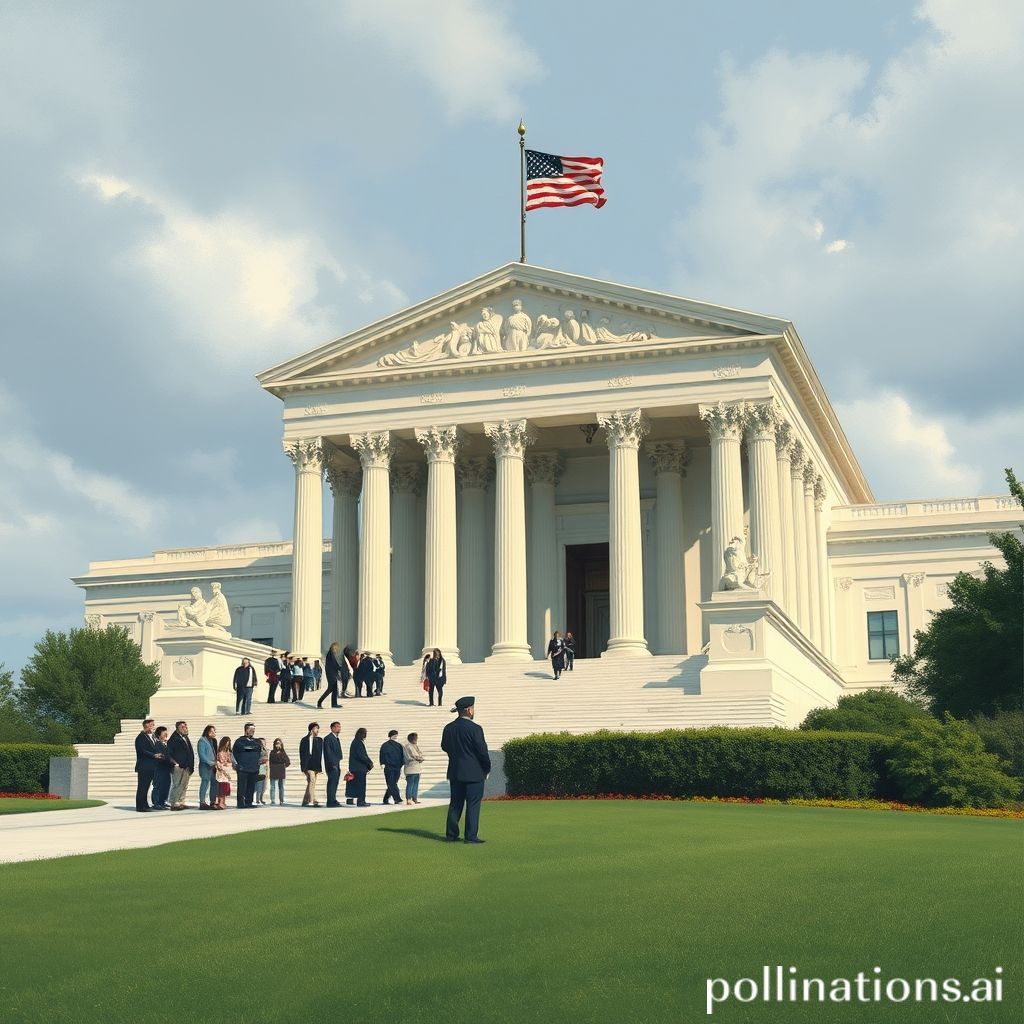
US Supreme Court rules on birthright citizenship order
Birthright Citizenship and the Supreme Court: A Deep Dive
Hey everyone! Birthright citizenship, a cornerstone of American identity, has been a topic of lively debate and legal scrutiny for decades. The 14th Amendment to the US Constitution states that all persons born or naturalized in the United States and subject to its jurisdiction are citizens. But what does this really mean? Has the Supreme Court weighed in definitively on every possible interpretation? Let's explore.
The 14th Amendment: The Foundation
The core of the birthright citizenship debate lies within the very first sentence of the 14th Amendment. Passed in 1868 in the aftermath of the Civil War, its primary goal was to grant citizenship to formerly enslaved people. The key phrase is "subject to its jurisdiction." While seemingly straightforward, this phrase has fueled various interpretations over the years. Does it apply to everyone born on US soil, or are there exceptions?
The Landmark Case: United States v. Wong Kim Ark
The Supreme Court addressed the issue of birthright citizenship in the landmark 1898 case of United States v. Wong Kim Ark. Wong Kim Ark, born in San Francisco to Chinese parents who were lawfully residing in the US but were not themselves citizens, was denied reentry to the country after a trip abroad. The government argued that because his parents were Chinese subjects, he was not "subject to the jurisdiction" of the United States, and therefore not a citizen.
The Supreme Court disagreed. In a 6-2 decision, the Court held that Wong Kim Ark was indeed a US citizen by birth. The Court reasoned that the 14th Amendment applied to virtually everyone born in the United States, with limited exceptions, such as children of foreign diplomats or invading armies.
Interpreting Wong Kim Ark: Lingering Questions
While Wong Kim Ark is a powerful precedent, it didn't resolve every question about birthright citizenship. Some scholars and politicians have argued that the "subject to its jurisdiction" clause implies a requirement of allegiance or connection to the United States beyond mere presence. They suggest that the children of undocumented immigrants, for example, might not be fully "subject to" US jurisdiction in the same way as children of legal residents or citizens.
Supreme Court and Subsequent Rulings
Since Wong Kim Ark, the Supreme Court hasn't directly revisited the core principle of birthright citizenship. However, numerous cases have touched upon related issues, such as immigration law and the rights of non citizens. These cases, while not explicitly overturning Wong Kim Ark, have sometimes introduced nuances that add complexity to the debate.
Arguments For and Against Birthright Citizenship
The debate over birthright citizenship continues today. Proponents argue that it is a fundamental constitutional right, promotes social integration, and avoids creating a stateless underclass. Opponents contend that it encourages illegal immigration, strains public resources, and can be exploited.
To simplify the arguments, here's a breakdown:
| Argument | Proponents | Opponents |
||||
| Constitutional Basis | Rooted in the 14th Amendment; Wong Kim Ark supports | "Subject to jurisdiction" is misinterpreted |
| Social Impact | Promotes integration; prevents statelessness | Strains resources; encourages illegal immigration |
| Economic Impact | Contributes to the economy in the long run | Burdens taxpayers |
The Current Legal Landscape
Despite ongoing debates, Wong Kim Ark remains the controlling precedent. Efforts to restrict or eliminate birthright citizenship through legislation or executive action would likely face significant legal challenges, given the established Supreme Court precedent. Any attempt to fundamentally alter birthright citizenship would likely require a constitutional amendment, a process that requires broad consensus and is politically difficult.
Where Do We Go From Here?
The debate surrounding birthright citizenship is likely to continue. The underlying tensions about immigration, national identity, and the meaning of citizenship itself are deeply ingrained in American society. While the Supreme Court's Wong Kim Ark decision provides a clear legal framework, the political and social dimensions of the issue remain contested. It's a complex topic that demands careful consideration, respect for different viewpoints, and a commitment to upholding the principles of the Constitution.
For me, the concept of birthright citizenship has always been tied to the idea of the American dream. The idea that anyone, regardless of their background, can come to this country and build a better life for themselves and their children. While the system certainly isn't perfect, and there are legitimate concerns about immigration and border security, I believe that birthright citizenship is a value worth preserving. It's a reminder that America is a nation built by immigrants, and that our strength lies in our diversity. It is important to understand the Constitution and the Supreme Court ruling to develop your own informed opinion.
Comments
Post a Comment